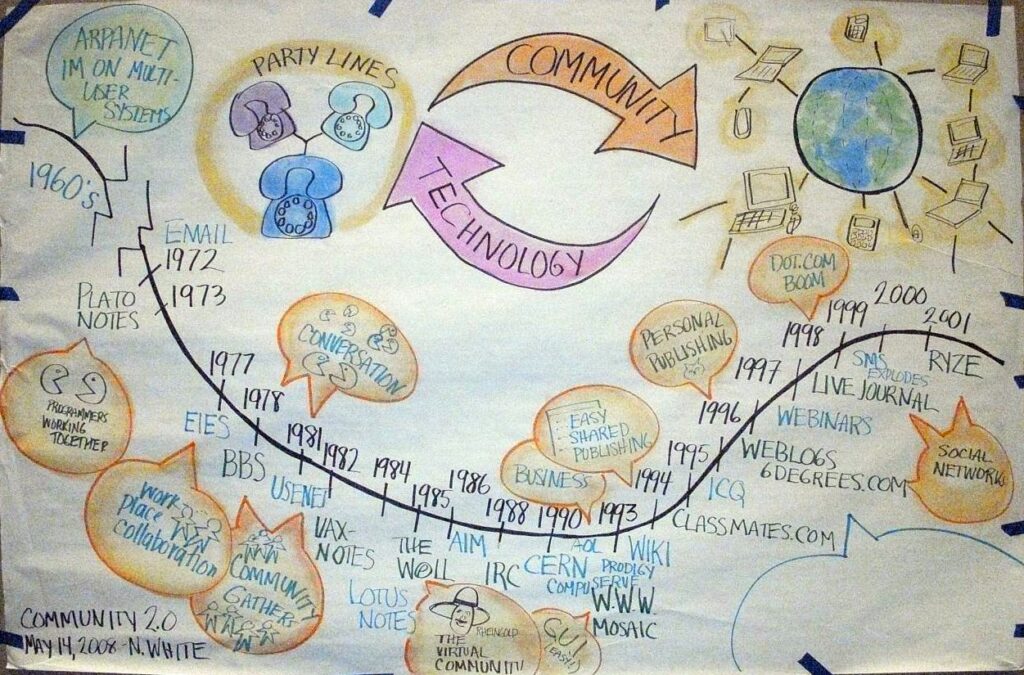
Digital education reading group: February 2024
This month the digital education reading group discusses the importance of online identity for online learners, and how we might foster online learning community ecosystems.
We are delighted that we will have a special guest to lead the discussion: Liz Nelson is a student on our BSc Computer Science and she and her peers have developed a thriving online community using the online communication platform, Slack. Liz will speak to us about what this community means to her and her class mates and ask us to consider what we might learn from this.
Some questions for us to discuss
There’s so much to think about when considering online learning communities and identities, and many more questions will come up in our discussion. The questions below will get us started. They explore themes of online identity, community building and impact on learning:
- How important is an online identity for online learners?
- What made the BSc Computer Science Slack community a success? What can we learn from that for other programmes?
- How important is the interface and software in developing a successful community and online identity?
- How does a strong online community impact academic study?
- What can we do to improve engagement in discussion boards for study purposes? (If discussion forums are all you’ve got, how can you help them actually be used for… discussion?)
- Staff/institution moderated spaces vs. peer knowledge sharing. Where tutors can only be around for a couple of hours a week, is there still value in tutor-led discussion forums?
Resources
A collection of resources gathered by Anna Armstrong, Sarah Eden, Tim Hall and Liz Nelson.
1. Barros, M. et al. (2022) Online identities in and around organizations: A critical exploration and way forward Organization, 30(1), pp. 3–20.
Available by logging in with your UoL OpenAthens credentials. Journal article “drawing on empirical analysis of virtual forums, social media, and platforms, the six papers included here highlight the struggles that accompany identity processes in the online environment and their implications for workers, activists, and other organized selves”.
2. Kreijns, K. et al. (2014) Community of Inquiry: Social Presence Revisited, E-Learning and Digital Media, 11(1), pp. 5–18.
Journal article. According to the classic Community of Inquiry framework the social presence of a group of online learners is “associated with the degree of participation and social interaction amongst them and, as such, is therefore considered a critical variable for learning”. This article proposes that it actually represents two constructs, namely (1) ‘social presence’ (degree of ‘realness’ of the other in the communication), and (2) ‘social space’ (degree to which social interpersonal relationships are salient).
3. Kwon, S. et al. (2021) The identity changes in online learning and teaching: instructors, learners, and learning management systems, International Journal of Educational Technology in Higher Education, 18(1), pp. 1–18.
Journal article. In this paper the authors argue that an LMS should be designed and managed as a learning community; both instructors and learners should be repositioned as co-participants; and they should work together to build a post-learning community by practising community membership.
4. Louise Taylor Bunce (2021) Building student identities as learners, not consumers, for better academic outcomes, Times Higher Education, 16 December.
Newspaper article. “Students who think and act like consumers have worse academic outcomes, research shows. Louise Taylor Bunce shares practical steps to help build students’ identities as learners rather than as consumers of education.”
5. Reflective teaching in a digital age (2020) Dr. Randy Garrison – Community of Inquiry (CoI) Framework and Online Teaching podcast
Podcast (38 minutes). Interview with one of the original authors of the framework, Dr. Randy Garrison, who speaks about the history of the framework, its role in the thoughtful design of online education, and practical ways of helping students learn through active participation and shared meaning making.
6. Sheffield Hallam University, Online identity, Hallam Digital Skills
Web page. A guide for students on how to manage and protect their online identity.
7. Stanford Graduate School of Education, Slack as a teaching tool – Leveraging interaction-rich online discussion boards to optimize instruction
Web page. A guide for teachers on how to use Slack as a teaching tool.
8. University of Calgary, CoI Framework
Web page. Designed to collect published research about the CoI and discuss these publications with interested researchers and practitioners. It hopes to “create a community of inquiry about the Community of Inquiry framework!”.
9. University of Leeds, Learning Online: Managing Your Online Identity – Online Course, FutureLearn
A two week FutureLearn online course. In this course you’ll consider your online presence; you’ll discover how what we say and do online can have major implications for our real lives, and those of others. You’ll also spend time looking at how to assess and enhance your online identities to ensure that you can get the most out of being yourself online.
List of topics discussed at previous meetings
